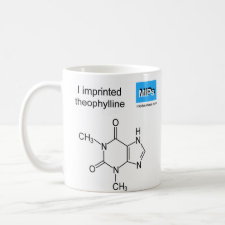
Authors: Kim JM, Yang JC, Park JY
Article Title: Quartz crystal microbalance (QCM) gravimetric sensing of theophylline via molecularly imprinted microporous polypyrrole copolymers.
Publication date: 2015
Journal: Sensors and Actuators B: Chemical
Volume: 206
Page numbers: 50-55.
DOI: 10.1016/j.snb.2014.09.047
Alternative URL: http://www.sciencedirect.com/science/article/pii/S0925400514011162
Abstract: In this paper, we developed a novel molecularly imprinted conducting polymer (MICP) system consisting of porous poly(pyrrole-co-pyrrole-3-carboxylic acid) copolymer matrices for the recognition of theophylline (THEO), a drug molecule. Various porous MICP (p-MICP) films were made using colloidal lithography and examined via gravimetric technique [e.g. gold quartz crystal microbalances (QCMs)]. They showed faster sensing response than a planar MICP film due to the increased THEO binding sites obtained from porous structures. Thus, this lithographical approach to MICP sensors can enable the rebind of a specific template to be increased to achieve improved sensor capacity
Template and target information: theophylline, THEO
Author keywords: Molecularly imprinted conducting polymer (MICP), theophylline, cyclic voltammetry, Colloidal lithography, Porous structure, Polystyrene colloids



Join the Society for Molecular Imprinting

New items RSS feed
Sign-up for e-mail updates:
Choose between receiving an occasional newsletter or more frequent e-mail alerts.
Click here to go to the sign-up page.
Is your name elemental or peptidic? Enter your name and find out by clicking either of the buttons below!
Other products you may like:
 MIPdatabase
MIPdatabase









